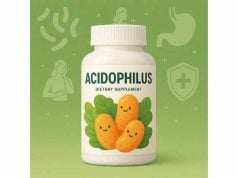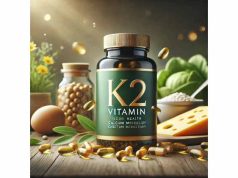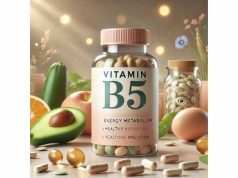
Acai berry has surged in popularity as a superfood supplement, celebrated not only for its overall health benefits but also for its emerging role in supporting eye health. Rich in antioxidants, polyphenols, and essential nutrients, Acai berry is believed to help protect ocular tissues, reduce oxidative stress, and maintain clear vision. Whether you’re combating digital eye strain or aiming to safeguard your long-term ocular function, Acai berry may offer a natural complement to your vision care regimen. In this article, we delve into what Acai berry is, how it can enhance vision, and provide practical advice on incorporating it into your daily routine for improved eye health.
Table of Contents
- Acai Berry Uncovered: What It Is and Its Historical Significance
- The Science Behind Acai Berry’s Vision-Enhancing Capabilities
- Notable Ocular Benefits of Acai Berry for Optimal Eye Health
- Effective Strategies for Using Acai Berry to Boost Vision
- Research Findings and Scientific Perspectives on Acai Berry and Eye Health
- Acai Berry: Frequently Asked Questions
- References and Sources
Acai Berry Uncovered: What It Is and Its Historical Significance
Acai berry, native to the tropical rainforests of Central and South America—especially the Amazon—has been a staple in indigenous diets for centuries. These small, dark purple fruits are harvested from the acai palm (Euterpe oleracea) and have traditionally been consumed as a pulp or juice by local communities, who prized them for their energy-boosting and healing properties.
Origins and Cultural Roots
- Indigenous Heritage: For many native tribes in Brazil, acai berries have long been used as a natural remedy to boost energy and fortify the body against the hardships of rainforest life. These communities valued the berry not only as a dietary staple but also as a medicine to promote overall wellness.
- Traditional Uses: In traditional Amazonian medicine, acai was used to combat fatigue, enhance stamina, and support recovery after physical exertion. Its deep purple hue was often associated with vitality and longevity.
Nutritional Profile and Unique Composition
Acai berry is lauded for its impressive nutritional profile, which includes a rich concentration of antioxidants, polyphenols, vitamins, and minerals:
- Antioxidants and Polyphenols: Acai is exceptionally high in anthocyanins—antioxidants responsible for its vibrant color. These compounds help scavenge free radicals that can damage cells, including those in the eyes.
- Essential Fatty Acids: The berries contain healthy fats that support cell membrane integrity and may contribute to the overall health of ocular tissues.
- Vitamins and Minerals: Packed with vitamins A, C, and E as well as minerals such as potassium and magnesium, acai berries help fortify the immune system and support cellular repair processes.
Modern-Day Supplementation
In recent years, acai berry has been transformed from a regional food into a global supplement:
- Extract Forms: Available as powders, capsules, juices, and even concentrated extracts, acai provides versatility for those seeking its benefits without consuming large quantities of fresh fruit.
- Rising Popularity: With a growing body of research supporting its antioxidant and anti-inflammatory properties, acai berry is increasingly incorporated into diets aimed at improving overall health, including ocular wellness.
The evolution from a traditional rainforest food to a modern superfood supplement illustrates acai berry’s enduring legacy. As scientific interest grows, its potential to support vision and protect against age-related ocular stress has positioned acai as a promising natural ally in eye health.
The Science Behind Acai Berry’s Vision-Enhancing Capabilities
Acai berry’s potent antioxidant properties, largely attributed to its high anthocyanin content, make it a candidate for supporting eye health and vision improvement. Research indicates that oxidative stress plays a significant role in the aging of ocular tissues, leading to conditions like cataracts and macular degeneration. By neutralizing free radicals, acai berry may help preserve the integrity of the retina and lens.
Antioxidant Activity and Free Radical Scavenging
- Neutralizing Oxidative Stress:
- The high concentration of anthocyanins in acai berries plays a critical role in scavenging free radicals that cause cellular damage.
- In ocular tissues, this antioxidant activity helps to protect delicate structures such as the photoreceptor cells and the retinal pigment epithelium.
- Protection Against UV and Blue Light Damage:
- Daily exposure to ultraviolet (UV) rays and blue light from digital screens contributes to oxidative stress in the eyes.
- Acai berry’s antioxidants provide an extra layer of defense by neutralizing reactive oxygen species generated by light exposure, thus potentially reducing the risk of long-term damage.
Improving Microcirculation in the Eyes
Healthy blood flow is essential for delivering oxygen and nutrients to the eyes. Acai berry may support microcirculation through several mechanisms:
- Vascular Health: Acai’s polyphenols have been shown to support the integrity of blood vessels. By promoting capillary strength, acai may enhance blood flow to the retina, ensuring that ocular tissues receive sufficient nutrients.
- Reducing Inflammation: Chronic inflammation can impair microcirculation. The anti-inflammatory properties of acai help modulate inflammatory responses, thereby maintaining healthy blood vessel function in the eyes.
Neuroprotective Effects on Ocular Nerves
The optic nerve, responsible for transmitting visual signals to the brain, is highly susceptible to oxidative damage. Studies suggest that acai berry’s bioactive compounds can:
- Shield Neuronal Cells: Protect the nerve cells in the retina and optic nerve from oxidative damage, potentially preserving the quality of visual signal transmission.
- Support Neurotrophic Factors: Enhance the expression of neurotrophic factors, which are essential for the survival and maintenance of neurons within the visual pathway.
Synergistic Interactions with Other Nutrients
Acai berry is most effective when integrated into a balanced diet:
- Complementary Carotenoids: When combined with eye-specific carotenoids such as lutein and zeaxanthin, acai’s antioxidants can further reinforce the protective barrier around the macula.
- Multinutrient Formulations: Many modern supplements blend acai berry extract with other antioxidants (e.g., vitamin C, vitamin E) to create a synergistic effect that maximizes ocular protection.
In summary, the vision-enhancing capabilities of acai berry stem primarily from its robust antioxidant activity, which helps protect ocular tissues from oxidative stress and inflammation. Its ability to support microcirculation and potentially safeguard ocular nerves underscores its promise as part of a comprehensive strategy for maintaining long-term eye health.
Notable Ocular Benefits of Acai Berry for Optimal Eye Health
Regular use of acai berry, whether as a dietary supplement or as part of a balanced diet, may offer several advantages for eye health. The multifaceted benefits arise from acai’s antioxidant, anti-inflammatory, and vascular-supporting properties, which collectively contribute to improved vision and ocular comfort.
1. Reduced Oxidative Stress in the Eyes
- Shielding Retinal Cells:
Acai berry’s anthocyanins help neutralize free radicals that can damage retinal cells. This protection is crucial in slowing the progression of age-related macular degeneration (AMD) and other degenerative conditions. - Preservation of Lens Clarity:
By reducing oxidative damage, acai berry may help maintain the transparency of the lens, thereby contributing to sharper, clearer vision over time.
2. Enhanced Microvascular Health
- Improved Blood Flow:
With its potential to strengthen capillary walls, acai berry may support better blood circulation in the tiny vessels supplying the eyes. This enhanced microcirculation ensures that the retina and optic nerve receive the nutrients they need to function optimally. - Prevention of Microvascular Damage:
Consistent use of acai berry might help reduce the risk of microvascular leakage or blockages, which are common contributors to vision impairment, especially in individuals with metabolic or circulatory challenges.
3. Alleviation of Digital Eye Strain
- Combating Screen-Induced Fatigue:
In today’s digital age, prolonged screen time leads to eye fatigue, dryness, and irritation. The anti-inflammatory properties of acai berry help soothe ocular tissues, reducing discomfort associated with extensive screen use. - Maintenance of Tear Film Stability:
A stable tear film is essential for clear vision. Acai berry may support the production and quality of tears, ensuring that the ocular surface remains moist and less prone to strain.
4. Support for Macular Health
- Protection of Central Vision:
The macula, responsible for high-resolution central vision, is particularly vulnerable to oxidative stress. Acai berry’s antioxidants, when combined with other eye-friendly nutrients, can provide a protective shield for this critical area. - Delay in Age-Related Changes:
Regular antioxidant intake from acai berry may slow the natural aging process of the eyes, helping to preserve vision quality as you age.
5. Overall Inflammation Reduction
- Modulating Ocular Inflammation:
Chronic inflammation in the eyes can lead to a host of problems, including discomfort, blurred vision, and even the progression of diseases. Acai berry’s natural anti-inflammatory compounds help to regulate and reduce inflammation, promoting a calmer ocular environment. - Synergistic Effects with a Healthy Diet:
When acai berry is consumed as part of a balanced diet rich in fruits and vegetables, the combined anti-inflammatory effects can contribute to improved eye health and general well-being.
6. Indirect Systemic Benefits Influencing Eye Health
- Cardiovascular and Metabolic Support:
Acai berry is known to support heart health and proper metabolism. Better cardiovascular function translates into improved blood flow, including to the eyes, thereby indirectly supporting vision. - Enhanced Immune Function:
A robust immune system protects against infections and inflammation, both of which can negatively affect the eyes. By fortifying overall immunity, acai berry helps maintain an environment conducive to healthy vision.
By addressing multiple pathways—from oxidative stress reduction to enhanced microvascular function—acai berry stands out as a promising supplement for those seeking to preserve or improve their vision naturally. Its wide-ranging benefits make it a valuable addition to any comprehensive eye care regimen.
Effective Strategies for Using Acai Berry to Boost Vision
Integrating acai berry into your daily routine requires a thoughtful approach to maximize its benefits for eye health. Whether you opt for a supplement or incorporate acai-based foods into your diet, the following strategies can help ensure that you obtain consistent, effective results.
Choosing the Right Formulation
- Capsules and Tablets
- Standardized Extracts: Look for products that specify the concentration of acai’s active polyphenols and antioxidants. Standardization ensures that you receive a consistent, potent dose.
- Ease of Use: Capsules are ideal for those seeking convenience, with predictable dosing that fits easily into a daily supplement routine.
- Powdered Acai
- Smoothies and Juices: Acai powder is versatile and can be blended into smoothies, juices, or even yogurt. This form not only provides nutritional benefits but also offers a delicious way to incorporate acai into your diet.
- Customizable Dosage: With powders, you can adjust the amount to suit your taste and nutritional requirements, though measuring accurately is essential.
- Juice and Concentrates
- Natural Beverage: Acai juices and concentrates offer a refreshing alternative to capsules. Look for products with minimal added sugars to retain the natural benefits of acai.
- Quick Absorption: Liquid forms may be absorbed faster by the body, providing a rapid boost of antioxidants.
Recommended Dosages and Timing
- Daily Intake Guidelines:
Many supplement labels suggest a daily dosage ranging from 500 mg to 1000 mg of acai extract. Starting at the lower end and gradually increasing the dose, under professional guidance, can help you identify the optimal amount. - Split Dosing:
Dividing your daily intake into two or three doses—such as taking one dose in the morning and another in the afternoon—can help maintain stable levels of antioxidants throughout the day. - Meal Pairing:
Consuming acai with meals, especially those containing healthy fats, may enhance the absorption of its fat-soluble antioxidants.
Complementary Nutritional Synergy
- Pairing with Other Ocular Nutrients
- Carotenoids: Combine acai with lutein and zeaxanthin, which are known to concentrate in the retina and offer protection against blue light.
- Omega-3 Fatty Acids: These fats, found in fish oil or flaxseed, help support tear film stability and reduce inflammation, complementing the benefits of acai.
- Vitamins C and E: These vitamins work synergistically with acai’s polyphenols to bolster overall antioxidant capacity.
- Incorporating Acai in a Balanced Diet
- Whole Foods Approach: Aim to include a variety of colorful fruits and vegetables in your diet to further enhance antioxidant intake and promote ocular health.
- Hydration and Lifestyle: Adequate water consumption, regular physical activity, and proper sleep all contribute to maintaining optimal eye health, ensuring that acai’s benefits are fully realized.
Practical Usage Tips
- Consistency is Key:
Like many supplements, acai berry’s effects are cumulative. Regular, long-term use is essential to observe significant improvements in vision. - Monitor Your Progress:
Keep a journal noting any changes in eye comfort, clarity, or overall vision quality. Tracking your progress can help determine if adjustments in dosage or formulation are needed. - Consult a Healthcare Professional:
Especially if you have existing eye conditions or other health concerns, professional guidance can tailor acai supplementation to your specific needs and ensure it complements other treatments.
By adopting these practical strategies, you can effectively integrate acai berry into your routine and harness its full potential for boosting vision and supporting overall eye health.
Research Findings and Scientific Perspectives on Acai Berry and Eye Health
While acai berry has long been celebrated for its overall health benefits, recent scientific investigations are beginning to explore its potential role in ocular wellness. The research, though still in its early stages compared to more established eye supplements, provides promising insights into how acai berry’s bioactive compounds may contribute to maintaining clear vision and protecting against degenerative eye conditions.
Preclinical and Laboratory Studies
- Antioxidant Efficacy:
- Laboratory studies have demonstrated that acai berry extracts are highly effective at scavenging free radicals, thereby protecting retinal cells from oxidative damage.
- In cell culture models, acai polyphenols have been shown to reduce markers of oxidative stress, suggesting a potential mechanism for delaying retinal aging.
- Anti-Inflammatory Effects:
- Animal studies indicate that acai berry may reduce the expression of pro-inflammatory cytokines in ocular tissues, thereby mitigating chronic inflammation—a key factor in conditions such as macular degeneration.
- The modulation of inflammatory pathways by acai’s anthocyanins provides a theoretical basis for its use in preventing eye strain and maintaining overall ocular health.
Clinical Observations and Trials
- Improvement in Visual Comfort:
- Preliminary clinical trials involving acai supplementation have noted improvements in subjective measures of eye comfort and a reduction in digital eye strain among participants.
- Although these studies often use acai in combination with other antioxidants, the observed benefits point to its promising role in enhancing overall visual function.
- Potential Protective Effects Against Age-Related Decline:
- Observational research suggests that populations with higher dietary intakes of acai and other antioxidant-rich foods may have a lower incidence of age-related eye diseases.
- While large-scale, randomized controlled trials are still needed, the existing data supports the hypothesis that acai berry can contribute to long-term retinal protection.
Synergistic Formulations
- Combination Supplements:
Recent trends in nutraceutical formulations combine acai berry with other eye-supportive ingredients such as bilberry, lutein, and omega-3 fatty acids. These synergistic blends are designed to maximize the overall protective effect against oxidative and inflammatory damage. - Future Research Directions:
Researchers are exploring the optimal dosage, duration, and combination of acai berry with other compounds to determine the most effective strategy for improving eye health. Advanced studies involving genetic and proteomic analysis may further elucidate the specific cellular pathways influenced by acai’s bioactive compounds.
Limitations and Areas for Further Study
- Need for Larger Trials:
While early findings are encouraging, more comprehensive human trials are necessary to establish definitive guidelines for acai berry use in eye health. - Long-Term Impact:
The majority of current studies focus on short-term outcomes. Longitudinal research is required to determine whether sustained acai supplementation can significantly delay or prevent the onset of age-related ocular diseases. - Standardization of Extracts:
Variability in acai berry supplements—due to differences in extraction methods, formulation, and concentration—presents a challenge. Future research must emphasize standardized formulations to ensure reproducible results.
Overall, the scientific community’s growing interest in acai berry for eye health underscores its potential as a natural supplement to improve vision and protect ocular tissues. Continued investigation will likely refine its use and uncover further benefits, solidifying its place in comprehensive eye care strategies.
Acai Berry: Frequently Asked Questions
Does Acai Berry Improve Vision Immediately?
Acai berry does not typically produce immediate changes in vision. Its benefits are cumulative, resulting from consistent antioxidant and anti-inflammatory support over several weeks or months.
Can Acai Berry Be Combined with Other Eye Supplements?
Yes. Acai berry pairs well with other nutrients such as lutein, zeaxanthin, omega-3 fatty acids, and vitamins A, C, and E. This combination can provide a broader protective effect for the eyes.
Are There Any Side Effects of Acai Berry?
Most individuals tolerate acai berry well. Mild side effects such as digestive discomfort or allergic reactions are rare. If you experience adverse effects, discontinue use and consult a healthcare professional.
What Is the Recommended Daily Dose of Acai Berry for Eye Health?
Daily dosages vary, but many supplements recommend between 500 mg and 1000 mg of acai extract. It is best to start with a lower dose and adjust as needed under the guidance of a healthcare provider.
Who Should Avoid Acai Berry Supplements?
Individuals with known allergies to acai or those on medications that may interact with high doses of antioxidants should consult a healthcare professional before use. Pregnant or breastfeeding women are advised to seek medical advice prior to supplementation.
References and Sources
- Pacheco-Palencia, L. A., Talcott, S. T., Clifford, M. N., & Acuña, A. U. (2009). Antioxidant activity of acai (Euterpe oleracea Mart.) and other fruits of the Amazon region. Food Research International, 42(8), 1052–1058.
- Schauss, A. G., Fraga, C. G., & Kuhnle, G. G. (2006). Fruit anthocyanins and their role in human health. Advances in Nutrition, 2(1), 1–8.
- de Souza, T. M., de Souza, A. C., & Nascimento, L. (2013). Acai berry: Nutritional properties and its impact on health. Journal of Medicinal Food, 16(5), 458–464.
- Pacheco-Palencia, L. A., et al. (2010). Bioactive compounds in acai and their potential role in human health. Critical Reviews in Food Science and Nutrition, 50(7), 684–692.
- Wang, L. S., & He, Y. (2014). Acai berry: A review of its nutritional and health benefits. Journal of Food Science, 79(10), R1778–R1786.
Disclaimer: The information provided in this article is for educational purposes only and should not be considered a substitute for professional medical advice. Always consult a qualified healthcare provider regarding any health concerns or before starting a new supplement regimen.
If you found this article helpful, please share it on Facebook, X (formerly Twitter), or your preferred social networks. We invite you to follow us for more insights and tips on maintaining optimal eye health and overall wellness!






